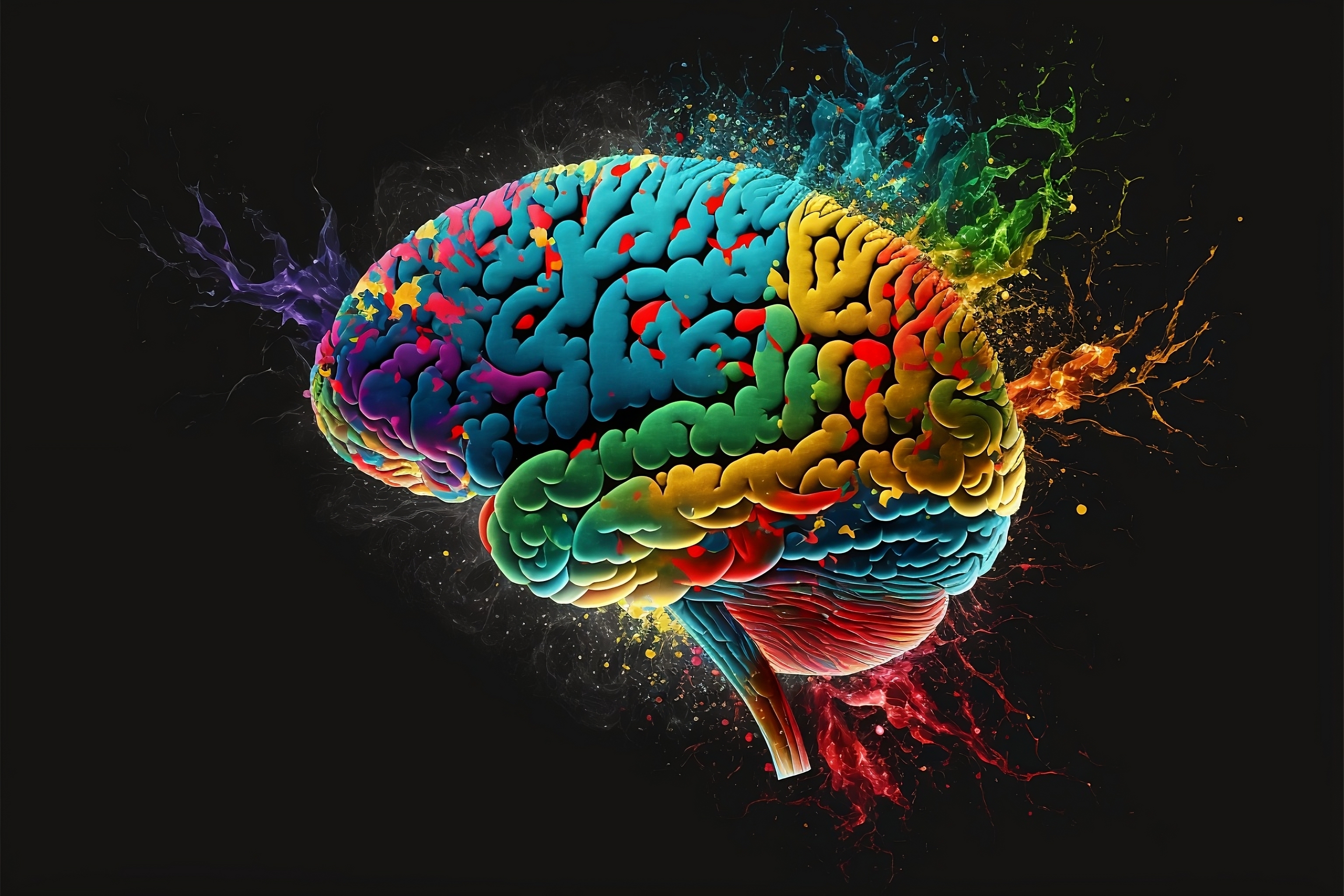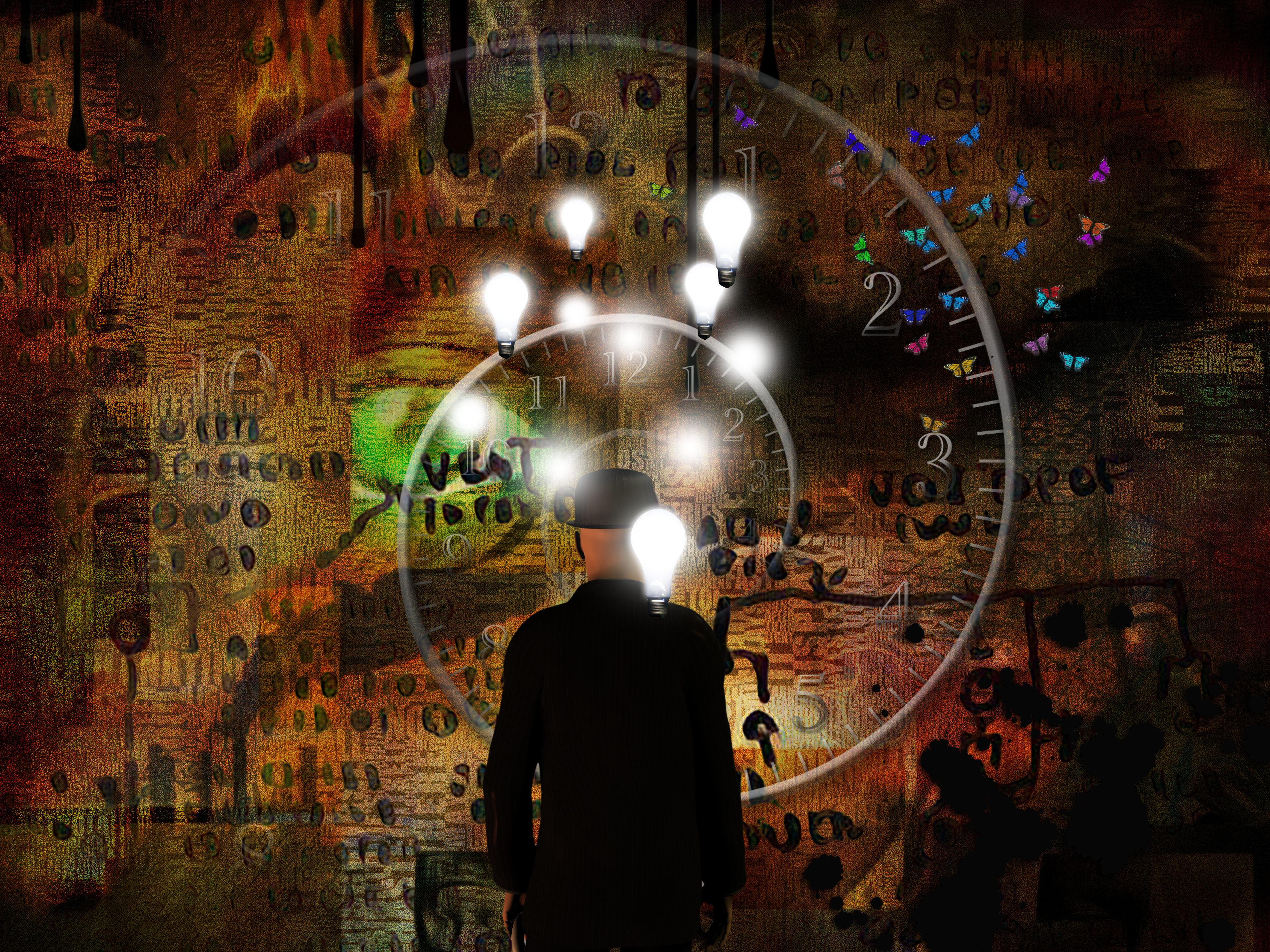I think many of us feel closely identified with our minds. It can seem like the best way of capturing who we are. Many of us perhaps have the intuition that if, for instance, you lost an arm or you lost a leg, that would be very challenging, but you would still be the same person. On the one hand, we have that sense of really close identification with our minds. On the other hand, we are often surprised at the ways in which they operate. They can sneak up on us. We can end up with beliefs, attitudes or behaviors that we do not necessarily endorse. I find it fascinating to try and understand the ways in which the mind, while being the most intimate part of us, can also have this life that comes apart from our rational control.
The life of the mind
Associate Professor in Philosophy
- The mind feels deeply personal yet can generate beliefs and behaviors that escape rational control.
- Perception justifies belief, but belief systems can fragment, allowing inconsistent or implicitly biased attitudes.
- Selection of what we attend to, guided by both salience and goals, determines the evidence we gather and thus which beliefs count as justified.
- Epistemology must assess attentional priorities as well as belief content, since information ordering shapes reasoning and moral outcomes.
Our sense of self
When we talk about the life of the mind, I think we are trying to describe and analyze, at the broadest level, all the ways in which our minds operate to produce our sense of self, the ways in which we reason, the feelings that we have.

© Shutterstock
Perception and beliefs
In philosophy of mind, these two concepts of perception and belief are very foundational, and much of my work is interested in understanding the relationship between them. In some ways, we want them to be quite distinct from one another; we want perception to be this direct confrontation with the world that can justify our belief states. In other ways, we want them to relate closely enough that, for instance, perception can justify belief. There are ways that they can talk to each other. When we talk about perception, I think we are talking about the ways in which our senses present the world to us. We hope that this lets us be in touch with reality in some sense. We often intuitively think of perception as something that happens to us, something that we cannot directly control, though I think there is reason to doubt that.
 © Shutterstock
© Shutterstock
This notion of belief in philosophy is very vexed and under pressure from many directions. Most simply, beliefs are the representations that we have of how the world is. They might be grounded on perceptual experience, but they might also rely on other belief states that we have and on inferences between those. People tell us things. It is not just that we see how the world is; people also tell us how the world is, and then we form beliefs on the basis of that.
Belief fragmentation
One of the ways in which this concept of belief has come under a lot of pressure recently is the recognition that our belief states do not always form a unified whole. There is this phenomenon of belief fragmentation where, for instance, you have committed to having lunch with somebody you know perfectly well, but in another conversation you might make another commitment at the same time and then realize there was a mistake. It is interesting that you might have beliefs you cannot quite access because you are busy with another task.
 © Shutterstock
© Shutterstock
The concept has also come under pressure with the recognition that sometimes you behave in ways that do not correspond with the beliefs you would endorse, particularly in the context of implicit bias and prejudice. It might be that you disavow racist attitudes, but when we look at how you are behaving, your behavior seems in line with those attitudes. In a simplistic way of thinking, belief translates straightforwardly into behavior. What is happening here? Is it the case that you are mistaken about the beliefs you have? Is it possible that you have multiple conflicting belief states? Sometimes, when you have conflicting belief states, mechanisms compel you to reconcile them. It feels almost impossible to believe both that it is raining and that it is not raining at the same time; you would have to reconcile that one way or another. Yet, in some cases, it seems people can maintain inconsistent attitudes at the same time. Some of the most interesting work in philosophy at the moment looks at the ways this simple concept of belief is fracturing and tries to develop more complex models of the mind that capture the nuance of our mental lives.
Determinants of information selection
Our minds are confronted with an excess of information at multiple stages. Take perception to start with. Right now you are looking at one aspect of your environment, and there has been some choice or decision process there. You could be looking at other parts of the room. There are then further filters as we go through that. Your gaze is directed in one direction, but within your field of view you will be prioritizing some of the things that are visible to you and attending to them more closely than others. As we go further back, you form masses of beliefs fleetingly and then never pay any attention to them again. Perhaps you forget them, or they sit around a bit longer. Anytime you are confronted with a reasoning problem, you have to decide what information is going to be relevant and what you attend to. It is a bit misleading of me to say that you have to make a decision there, because a lot of that is not happening at the person level. Going back to the perceptual case, what you attend to perceptually is often driven by bottom‑up factors that are very hard for you to control. If something is brightly colored, moving fast or contrasts with its environment, it is almost inevitable that you will pay attention to it. If you think of a firework going off, it is really hard not to attend to it.
Additional drivers of attention
However, some of what we attend to is also driven by what I call top-down factors and processes. What goals you have at a given time plays a really important role in determining what you attend to. Some of that might be deliberate. If you are in a hurry to leave the house and you are trying to find your keys, you are going to be looking around and consciously directing your attention to the surfaces where you might have left them, looking for things that look like your set of keys. Sometimes our goals operate without us doing that deliberately. If you think of a time when you have been really hungry, food is very likely to capture your attention. That is top-down to some extent, in the sense that finding food to eat is a goal you, as an organism, have, but it is not something that necessarily feels under your voluntary control. Even if you are in a meeting and you say to yourself, "Jessie, stop looking at the biscuits," it can be hard to stop doing that if you are really hungry.
Meaning of salience
When I say that something is salient, I mean that it is disposed to capture your attention. Epistemology has to be wary of making generalizations. This is perhaps a bit of a caricature, but by and large, it has invested a lot of resources in thinking about what makes the transition to forming a belief good. It is very well placed to say when a belief state is justified or unjustified, when it is rational or irrational. One of the key insights in my work is that this is not enough to capture a lot of what we care about when we think about how our mind works. The selection of information — what we end up paying attention to — is crucial to many of the processes that happen in our minds and that are intuitively relevant to the concerns of epistemology. That might include what beliefs you end up forming but also what beliefs you attend to, which will have a downstream impact on how you reason on their basis. We need a framework that lets us evaluate what we pay attention to from a distinctively epistemic perspective. What I mean by that is that there are all sorts of ethical dimensions to what you pay attention to. It is a sign that you care about somebody that you pay attention to them. If you are a caregiver, it would be morally wrong in some cases not to pay attention to something. If you have a particular social role, such as being a teacher, there are certain ethical demands that you should attend to your pupils in specific ways. I am interested in the ways in which what you attend to shapes how you reason, how you process and how you respond to information. I think epistemology will be inadequate if it has nothing to say about that.
Interconnected beliefs and reasoning
When we think of our beliefs as forming a web, we can recognize that some beliefs have the role of a horrible connector in that network, where a lot of other information gets fed through them. Sometimes that can be driven by factors which do not feel epistemically relevant. It might be, for instance, that it gives you a kind of pleasure to think about certain things. I think this can sometimes be a guiding factor in certain forms of prejudice: people can find a certain satisfaction in returning to beliefs about a group of which they are a member being slightly superior to other groups, for example. Sometimes you can see this in ways where the reason why somebody is making a belief very central in how their reasoning operates is perhaps intuitively more epistemically relevant; they might think that it just makes sense of a lot of things, that it has rational implications for many other beliefs, but it can be easy to overshoot in that way. You need to strike a balance between relying on the information you already have and being in a more exploratory mode in which you are willing to pay attention to new beliefs or place sufficient emphasis on them.
Belief justification
When people talk about whether a belief is justified, they often have in mind whether it is apportioned to the evidence in the right way. I think that is a crucial determinant of justification; you want to recognize what evidence you have, and, as far as possible, try to fit your beliefs to that evidence.
 © Shutterstock
© Shutterstock
There are other accounts of what it takes for something to be justified; you might want it to be the output of a reliable belief‑forming process. It is crucial to recognize, though, that you could have multiple beliefs which all score equally in terms of justification. Perhaps they are all equally apportioned to the evidence, but that might not be the end of the story we want to tell about their epistemic status. In particular, it is important how you have gathered your evidence if we are using sensitivity to the evidence as a marker of justification. If the set of evidence that you are starting from is not representative, or is skewed in some way, that will cause big downstream problems. You might say, "Well, it is terrific: I have a belief set that is perfectly apportioned to my evidence." It is just that your evidence consists of one book you have read and absolutely nothing else. That is not a great epistemic situation. One reason we need to think about what you are attending to is that what you attend to determines what your evidence base is, and that, in turn, determines which of your beliefs are justified. We need to say something about that part of the process that is upstream — the part where you are selecting what your evidence is.
Duty to believe?
Philosophers have been very cagey about saying that we have a duty to believe. One reason is that it can seem to generate an excessive number of duties. For instance, you might think that if you have good evidence for something, you should form a belief on that basis. One reason not to do that is perceptual: you have so much evidence, far more than you could possibly form beliefs on. We have to allow that some degree of selectivity is fine. That has to be baked in — it is okay that you are not forming every belief you could possibly form. Then, however, we face a tricky question: which beliefs should you form?
 © Shutterstock
© Shutterstock
If we are not saying that you have a duty to believe everything you could believe, which things should you believe? At this point, we get into interesting questions about the extent to which epistemology and, for instance, ethics or practical priorities should be independent from one another. One natural answer is that you should believe the important things. Which are the important things? We could give an epistemologist's answer: the most foundational beliefs, the beliefs that have the most rational implications for other things. As humans who live with other humans and who have to survive in the world, intuitively what is important also includes beliefs that are morally significant — perhaps about other people and the ways they matter to us — and practical beliefs. If you have a choice, at some point you have to form beliefs that let you continue to survive, even if they are not the beliefs that let you learn most quickly about the world.
Falling short
We want to have ways to describe what is happening when the mind is not functioning optimally. We might describe that as a failure, but I hesitate to use this word, because it implies a clearer black‑and‑white distinction between when the mind is operating right and when it is not than I think really exists. Because we are overwhelmed with information, I do not think our best approach is to say, "This is what you should attend to; this is what you should not attend to." Instead, I try to describe a broad evaluative framework that says, in an optimal situation, we would attend in a certain way.
 © Shutterstock
© Shutterstock
We are going to fall short of that all the time, in all sorts of ways, and we need nuanced resources to describe the various ways we might fall short of that standard. Some of those shortcomings might just result in us not learning very effectively. Particularly as we get older, we can become less curious about the world and comfortable with our attention being channeled in familiar ways. We focus on a few topics that interest us, stop asking certain questions and, while that might not cause practical problems, epistemically it can be a loss, because we are no longer exposing ourselves to new information. That can cause social problems as well. Sometimes it can be much more severe. One way prejudice and bias operate is that we attend to some of the information we have disproportionately while neglecting other information. If we are prejudiced against a particular group, we might attend disproportionately to negative properties of that group. Even though we have more positive beliefs, we are not prioritizing them or using them in our reasoning. This can also be a problem when it comes to selecting the body of evidence on which we base our beliefs. If we do not maintain flexibility in our attentional patterns, we might neglect evidence that is intuitively relevant to the questions we are trying to resolve. As a result, we end up forming beliefs that are less fitted to letting us function in the world because, although they fit the evidence, they fit only some subset of it.
Training the mind
Can we improve the way our minds work? Surely, yes. I love this question because it confronts us with the question of who is really the boss here. Who are we? Are we just identified with our minds, or can we stand apart from them and think about ways in which they could operate better? When we are thinking about attention in particular, it can sometimes seem tough once we start evaluating how we attend to things, because often that does not feel like something we intuitively control. If you have ever been distracted in a meeting by an itch or somebody's distracting habits, you can say to yourself, "Come on, Jessie, that is not the thing that you should be attending to right now," but it is really hard to control. We need to recognize the ways in which attention is not always under our voluntary control. On the other hand, there are clearly things we do that build attentional habits and dispositions, and those things are very much under our control; agents can be evaluated and critiqued for how they go about doing that. I also think it can be really helpful to develop a practice of attending to how your mind works: noticing it, not always necessarily being able to change it, but, over time, recognizing the kinds of dispositions you have and the weaknesses, pitfalls and vulnerabilities to bias that we all have. We cannot begin to engage with those until we have gone through that stage of simply recognizing and noticing the operation of our minds and what things we attend to.
Prioritizing information
 © Shutterstock
© Shutterstock
If there were one preconception about the life of the mind and how the mind operates that I would want to resist, it is that the primary focus of our interest should be on the beliefs that we end up forming. It is absolutely crucial that we think about how we are prioritizing and ordering information, both because that determines what beliefs we end up forming and because it plays a role in what we do with those beliefs downstream. As I think about the mind, that process of prioritizing, ordering and structuring information is absolutely foundational, probably more important than the explicit content of the beliefs we do have. That is what I really want us to pay more attention to.
Editor’s note: This article has been faithfully transcribed from the original interview filmed with the author, and carefully edited and proofread. Edit date: 2025
Discover more about
the life of the mind
Munton, J. (2025). Priority and Prejudice: The Epistemology of Salience and Attention. Oxford University Press.
Munton, J. (2021). How to see invisible objects. Noûs, 56(2), 343–365.
Munton, J. (2016). Visual confidences and direct perceptual justification. Philosophical Topics, 44(2), 301–326.
Munton, J. (2022). Answering machines: How to (epistemically) evaluate a search engine. Inquiry, 1–29.